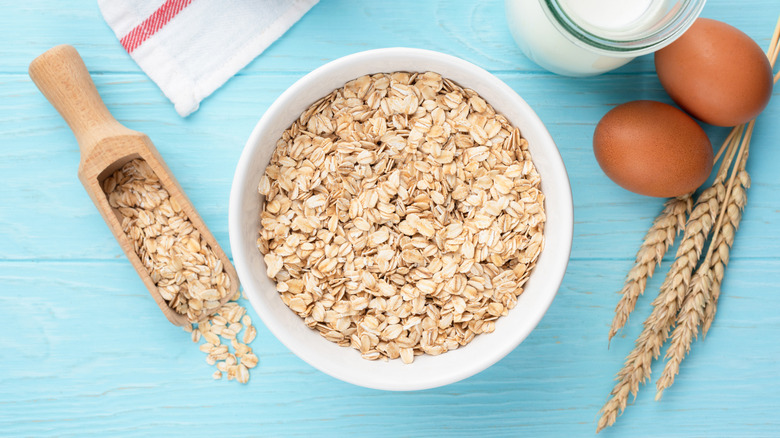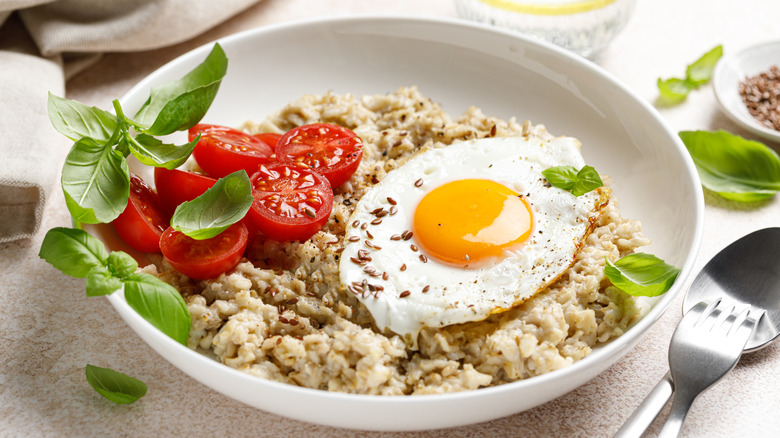
Eating healthy means starting your day right with a nutritious breakfast. Oatmeal and eggs are two of the most common breakfast foods and are touted for their health benefits. But which is better for you? We turned to Angel Luk, a Registered Dietitian, to uncover the answer.
Choosing between the two was tough, but ultimately, she went with oatmeal. “My bias comes from counseling countless people who are not eating adequate amounts of fiber, and as a result, suffer from poorly managed blood sugar, blood cholesterol, and digestive health.”
Fiber doesn’t spike blood sugar and can lower cholesterol levels. It also helps regulate digestion and eliminate waste. All these benefits can help you thrive. And in the fiber department, oatmeal is the obvious winner. As Luk points out, “Eggs contain zero grams of fiber while about half a cup of uncooked whole grain rolled oats offers 10 grams of fiber.”
She explains that most Canadians and Americans aren’t getting the fiber they need and could benefit from increased intake, which can be done by adding nutritious lentils to salad, sprinkling flaxseed on your meals, and eating oatmeal!
It’s important to note that there’s no one-size-fits-all diet. Everyone is bio-individual, meaning they have unique dietary needs. Luk explains that some people may have a reason for following a low-fiber diet, so this advice wouldn’t necessarily apply. But generally speaking, fiber is crucial to overall health. However, it’s not the only variable to consider when deciding whether eggs or oatmeal is more nutritious.
Eggs vs. oatmeal: a nutritional comparison

Angel Luk describes how nutrition is nuanced. It also depends on the quality of food you purchase and how you prepare it. There are unhealthy ways to cook eggs as well as oatmeal. However, “If the eggs are cooked with lots of vegetables and transformed into fiber-rich omelets, quiche, or scrambles, that would be a game changer.” She adds, “Using the same logic, oatmeal can be the foundational base of a lot of fiber-rich toppings like fruit, chia seeds, ground flaxseed, and nuts too.” You need to evaluate the entire meal, not just one component.
With that said, fiber is just one piece of a larger puzzle. A healthy diet also consists of adequate protein, fat, and micronutrients. A large egg contains 6 grams of complete protein, meaning it provides all the essential amino acids your body can’t produce alone. Meanwhile, one cup of uncooked whole-grain oatmeal has 10 grams of protein and 6 grams of fat. However, oatmeal should be paired with other foods to form a complete protein. Finally, eggs and oatmeal are considered nutrient-dense foods since they’re rich in vitamins and minerals.
The takeaway? It’s a win-win. Whether you choose eggs or oatmeal, you’ll be eating a nutritious breakfast. And if you want the benefits of both eggs and oats, eat them together! Think eggs and veggies on a bed of savory oatmeal.


















